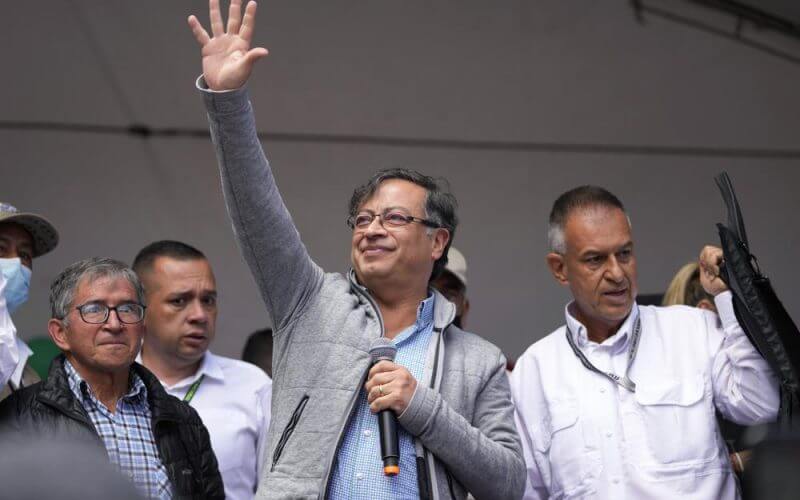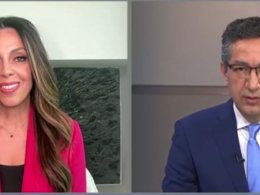With the Election of Colombia's first Leftist president, Gustavo Petro, in June, many wonder what radical changes the new government will bring, particularly concerning foreign alliances. While many autocratic regimes like Russia, China, Iran, Venezuela, and others distanced themselves from Petro during the Colombian elections, congratulations and offers of friendship poured out from these regimes since, signaling courtship for potential alignment with the South American country.
One of the first regimes to congratulate then-candidate Petro into office was Venezuela President Nicolas Maduro, prompting the new president to declare his intention to reopen Colombia's border with the Socialist regime and renew relations between the two governments.
Foreign policy experts like Joseph Humire, executive director of the Center for a Secure Free Society (SFS), believe that the potential renewed relations between Petro and Maduro “legitimize the Venezuelan government and sentence Venezuelan people to an even longer eternity under the totalitarian rule of a brutal regime."
Humire’s center recently published a report outlining the potential consequences to now having Petro in office in Colombia.
Additionally, observers note that President Petro has yet to join the regional club of authoritarian states known as the Bolivarian Alliance (ALBA) alongside countries like Venezuela and Cuba, which have very anti-American governments.
"It's a dangerous proposition. On the Venezuelan side is a complex apparatus that blends illicit actors with state institutions, meaning that you are not just opening the country to commerce but to all the corrupt actors protected in Venezuela by the Maduro regime," according to Humire. The soon-to-be inaugurated Petro government has signaled, however, its intent to sign a peace agreement with terrorist groups in Colombia that some say could blend the country's farming sector with illicit cocaine production.
Should Colombia decide to join the Bolivarian Alliance (ALBA), Humire argues that it is because of the instability in the Latin American region. The instability described by Humire has catalyzed "more mass migration, which has caused the United States to feel this directly on the southern border. The largest mass migration in the Western Hemisphere is from Venezuela, with six million migrants fleeing the country since 2014 and has not hit the U.S. southern border because of Colombia, which could now change."
The Bolivar Alliance is a regional alliance that was founded by Cuba and Venezuela in 2004, alongside other socialist and social democratic governments, to create an economically and militarily integrated Latin America. The organization and its members have tried to use this alliance to match the power of the U.S. and allow socialist regimes like Venezuela and Cuba to exert their influence to South American countries. The countries like Colombia that have not joined the alliance take an anti-Venezuelan stance and the fear that it might spark more illicit activity in South America.
According to Humire, "the Bolivarian Alliance is a conglomerate of criminalized states that have catalyzed more drug trafficking into America, namely cocaine. Colombia is the number one producer of cocaine, and if President Petro joins the 'Bolivarian club,' he could weaponize cocaine trafficking in much the same way Hugo Chávez did in Venezuela."
National security experts point out that the Bolivar Alliance has allowed countries like Russia, China, and the Islamic Republic of Iran to exert more influence in South America, supporting regimes like Venezuela and Cuba with military and economic aid. Islamic terrorist organizations like Hezbollah and the IRGC have gained a presence in places like Colombia, Argentina, Venezuela, and other countries, engaging in illicit weapons smuggling and drug trafficking. "The alliance is the main gateway for anti-American, maligned, external state actors to increase their presence and influence in Latin America and the Caribbean, which means Colombia could flip from the strongest U.S. partner in Latin America to a partner of preference for Russia, China, and Iran, only 2,600 miles away from our shores. “The U.S. needs to prioritize Latin America over other conflict regions and begin to construct a grand strategy for the region,” said Humire.










